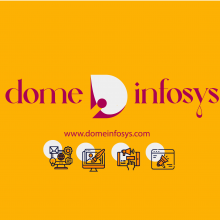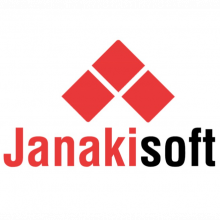Explore Top Laravel Development Companies in Nepal
Simriktrix specializes in delivering comprehensive digital marketing solutions, including expert SEO services, innovative web design and development.
Rewa Soft strives to provide expert web and app development services that are suited to the individual needs of its global customers.
Mega Web Link - Best SEO agency & website development company in Nepal with 11+ years’ experience, delivering design, branding & digital growth.
Services:
Artivtech, Nepal: We leverage expert developers to build custom websites and apps. Your strategic partner for accessible digital success.
Services:
It happens after am impact.
Services:
The #1 IT Companythat provide various services like app development , website development , custom softaware development at a very affordable price.
Services:
Committed to delivering scalable, high-performance software solutions. Specializing in both web and mobile application development.
Inflancer revolutionizes influencer marketing by providing a streamlined platform for influencers and businesses to connect.
Services:
Takes you forward
Tech Trendo is Best & Leading IT company in Eastern Nepal, delivering innovative digital solutions with global standards.
Help you grow With an Optimized Custom Website, Engaging Social Media Content. Contact now not to miss the opportunity: https://dhunganasajal.com.np
Services:
Dome Infosys is a leading provider of innovative IT solutions, specializing in web development, software solutions, and digital marketing.
Janaki Soft is Nepal’s leading IT company, offering top-tier software development, website development, IT consulting, AI, and digital solutions.
Website Design and Development, IT Consultancy and Corporate Solutions Provider
DIGU is most reliable IT professional services firm focused on delivering world-class software development services for SAAS and IT service companies
Suryani International, a top IT company in Nepal, offers creative web design, reliable hosting, and digital marketing to help businesses grow online.
Services:
At Digital Yuba, we dream big, but keep things simple. We're a team of tech-loving folks who want to help businesses.
Services:
Code For Core Innovation offers web and mobile development and IT consulting services providing services to 150+ entities globally for 8 years.
We discover digital possibilities, consult your business prospectives and design tailored application to suit your business needs
Softbenz Infosys is the top IT Company in Nepal providing website design & development services in Nepal along with digital marketing services.
Services:
Key Innovation, converting ideas into business . System development with customize customers requirement along withh full support and maintainance.
Services:
Get Smart. Go Digital.
Filter Laravel Development Companies in Nepal by Cities
Find the right tech company near you or from a specific city. Some of the best companies might be located in smaller cities.
Find more Laravel Development companies around the world
TechBehemoths is the world's most advanced and user-friendly platform to match IT Companies with real clients without hustle.
The IT Industry in Nepal: Companies, Data & Insights
The IT sector in Nepal is an emerging area of the country. It is one of the priorities for the Nepalese government. This country specializes in web and mobile apps development, they have a lot of new startups, but also big companies like Verisk, Leapfrog, or Brain Digit IT Solutions, and of course, many of the companies in Nepal are providing services for other companies in Europe, America, and other countries in Asia. Also, the government of this country identified the high demand for IT students and professionals from other developed countries, and they started offering different opportunities for being able to become an IT professional. In order to achieve these requirements, many institutions, universities, and colleges are providing various courses and degrees, for example, BCA, CSIT, or BSc.
Right now, a big challenge for the industry is the high competition that is going on in the sector, which is growing very fast, especially because right now, a company can hire employees from every part of the world, and that makes the level required to keep growing.
The IT industry in Nepal has more potential, but due to the lack of laws in relation to IT topics, it’s a bit stalled in some sectors like e-commerce, online transactions, and cyber law.
Why Should Somebody Work With Nepalese Companies?
Some of the best advantages that this country has are the following, low cost, affordable workers, and high profitability, and this is because, there’s a minimum wage of NPR 19,550 a month, and that’s $138.81, which stands out when looking for outsourcing services or products to another country for being a really strong point when choosing which country you should work with.
Another strong point of Nepal is the accessible bureaucracy and its higher education in IT topics such as mobile app development, data science, or web development, as the most important ones. The number of people interested in IT in this country is growing year after year because of the popularity and the job opportunities that can be found in this sector, in Nepal, and outside of Nepal. Some of the best universities and institutions to learn this discipline are Nepal Engineering College, Kathmandu University, and Himalaya Engineering College. Each year, approximately 5000 students graduate from Nepalese universities in the IT sector.
Business Process Outsourcing (BPO) in Nepal is very popular, and they are providing these services all over the world, but especially in European countries like Germany, the Netherlands, and France. And of course, the ICT Policy from 2015 has a special and separate section focused on the delivery and good use of ICT. Some of the political sectors that are involved in the law creation in relation to the ICT BPO are the Ministry of Information and Communication, the Ministry of Science, Technology, and Environment, the Nepal Telecommunication Authority, and the Department of Information Technology of the government.
What Should Somebody Be Aware of When Working With IT Companies From Nepal?
Nepal is well-known for being a low-cost destination for Outsourcing projects, and this country has some interesting data about professionals graduating each year in IT topics in the universities of Nepal, but there’s not a majority of professionals that went through this educational background and that can also lead to finding a lot of non-professional workers in Nepal, due to the difficulties to be able to study properly or the difficulties for almost the 25% of the population that are living with 50 cents of Euro a day. This can cause many people who are not well prepared to try to find their career in this sector, which looks highly successful and profitable, but without the basics that support the knowledge required to develop and outsource software, services, or apps.
Also, it is important to say that Nepal, being outside of the European Union, doesn’t have to comply with the laws and agreements that are currently being used in the countries that are part of the EU. This is important because the quality standards may not always be similar between the country of origin and destination during the Outsourcing process. Also, there are cultural aspects such as the possibility of finding companies and workers with a low level of English, which can be dangerous for the relationship between the two parties in terms of the goals and the way to achieve them.
There are also some aspects in relation to the laws and agreements that are currently being used in Nepal that can be dangerous, and this is the lack of laws in some aspects, such as e-commerce, e-transactions, or cybercrime laws.
The poverty levels in this country are an important factor to take into account, and this can lead to companies trying to sell the BPO services but not being able to achieve the expected standards of quality required by some countries in the most developed countries. This doesn’t mean that Nepal is a country of low-quality BPO companies, but it’s more possible to find them than in other places due to some of its socio-economic problems.
The last thing that is important to talk about is the stability of the country. Nepal is a country that is affected by some natural disasters more often than is desirable. In fact, it is a very vulnerable country when talking about natural disasters such as earthquakes, floods, landslides, and Avalanches due to its high mountains and altitude. This, in addition to the socio-economic situation, is two very important things to take into account when working with Nepalese companies, because the instability can be more frequent than it is desirable.
How Reliable Are IT Companies From Nepal?
Continuing with the previous point, there are Nepalese companies that are very reliable, but also others that cannot be so reliable due to some specific situations and characteristics of this country, such as poverty. Nepal is one of the poorest and least developed countries in some aspects, so you can find services offered that don’t correspond to the quality required due to the difficult situation of some people.
Also, there’s an important trend in the IT sector in Nepal, which is about cybercrimes and a lack of system security. It's popular to have one ethical hacker in a company because it’s popular to hack public and private websites, and companies need to avoid this, which is a problem for Nepal’s IT industry.
Also, the lack of awareness of cybercrimes in business firms and brands is a big concern nowadays. And this is related to the lack of cybercrime laws, which can also affect Nepalese companies’ reliability.
As in past articles about the IT industry reliability in other countries, you should always work with companies of proven quality and experience to avoid scams as much as possible. There’s always a risk when outsourcing services to another country, but with Nepal, this risk is more notorious than with other European countries due to the difficult situations that we talked about in this section.
How is the IT Industry in Nepal in Relation to the Neighboring Regions/Countries?
Nepal is over India and under China, which are two powerful countries in terms of the IT/ICT industry, especially China, which has a widely established ICT market in its country, as they are the home country of brands like Huawei, Xiaomi, or Honor. China, is the second-largest ICT market and in the year 2025 the sector’s production outperformed the country’s GDP with technologies like Big Data, IoT, or AI (Artificial Intelligence), their project is to reach 8.1$ trillion dollars representing 55% of China’s GDP, and this is also because in this country they have their own phone brands, social media apps and networks, and of course one of the biggest competition centers for making the best hardware and software for their products.
On the other hand, India is a well-known and number 1 BPO destination country, with a very strong industry, well-educated professionals, and low costs for companies. Also, living costs in India, rents, and profitability really stand out for their price-quality when compared to Nepal, and this is one reason why many Nepalese qualified workers choose to go and develop their career in this country. Both are very powerful competitors.
Conclusion
Nepal can be a good outsourcing destination for some companies that put the low prices first and the quality or the stability in second place, even when you can find very well-prepared professionals and companies. Some aspects of the law and agreements related to cybersecurity and cybercrimes are also a big weak point. The strong points are low costs, high profitability, and a good number of graduate students in IT-related fields every year. Taking these aspects into account, we can conclude that Nepal can be a good Outsourcing destination for its production prices, but it’s not very good in other aspects, such as law, protection for the company that wants to outsource its services. This can be beneficial for companies looking to reduce their costs to the maximum.
What is Laravel and what are its benefits for your projects?
Laravel is a popular open-source PHP web application framework used for building web applications and websites. It's known for its elegant and expressive syntax, as well as its rich set of tools and libraries that simplify common web development tasks. Laravel was created by Taylor Otwell and released in 2011, and it has since gained widespread adoption in the PHP development community. Here are the key aspects and features of Laravel:
-
Elegant Syntax
-
MVC Architecture
-
Artisan CLI
-
Database Abstraction
-
Blade Templating Engine
-
Middleware
-
Authentication and Authorization
-
Routing
-
Caching
-
Testing
-
Security
-
Community and Ecosystem.
-
Scalability
When choosing a PHP framework for a project, there are several alternatives to Laravel, each with its strengths and use cases. The choice depends on project requirements, familiarity with the framework, and specific preferences. Here are some notable PHP frameworks that often compete with Laravel:
-
Symfony: Symfony is a high-performance PHP framework known for its flexibility and modularity. It is often used for large, enterprise-level applications. Laravel actually uses several Symfony components under the hood. Symfony provides robust tools for building web applications, APIs, and microservices.
-
Zend Framework (Laminas): Zend Framework, now known as Laminas, is a mature framework that focuses on building scalable and enterprise-grade applications. It provides a collection of reusable components for various tasks, allowing developers to choose and integrate only what they need.
-
CodeIgniter: CodeIgniter is a lightweight and straightforward framework that emphasizes simplicity and speed of development. It's often chosen for smaller projects and rapid application development (RAD). While it has a smaller feature set compared to Laravel, it's known for its minimal learning curve.
-
CakePHP: CakePHP is a full-stack framework that focuses on convention over configuration (CoC). It comes with features like scaffolding, a built-in ORM, and a friendly community. It's known for its simplicity and convention-driven development.
Companies specialized in providing services using Laravel can significantly benefit relevant projects. Their expertise in Laravel development allows them to efficiently create customized web applications that meet specific project requirements. With a deep understanding of Laravel's capabilities, these companies can ensure the project benefits from Laravel's robust features, clean code structure, and security mechanisms.
They expedite development using Laravel's built-in tools and extensive package ecosystem, making them well-suited for both small-scale and enterprise-level applications. Security is a top priority, with specialists implementing best practices to protect against common web vulnerabilities, enhancing the project's safety, especially when dealing with sensitive data.
After the project launch, these specialized companies offer ongoing maintenance and support, addressing issues, applying updates, and ensuring the application's long-term reliability. They also excel in integration with third-party services and technologies, expanding the application's functionality and enhancing the user experience.
In addition, some companies may offer UX and design services, further improving the project's visual appeal and usability. Through rigorous testing and quality assurance, they identify and resolve potential issues before deployment, ensuring the application performs reliably across various devices and browsers.























